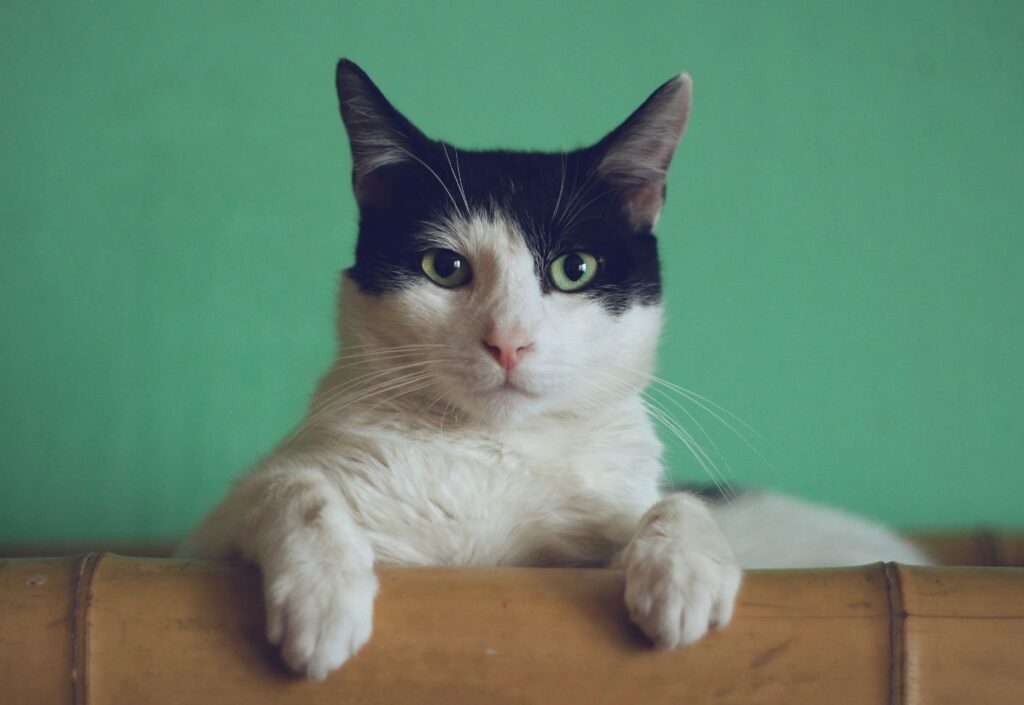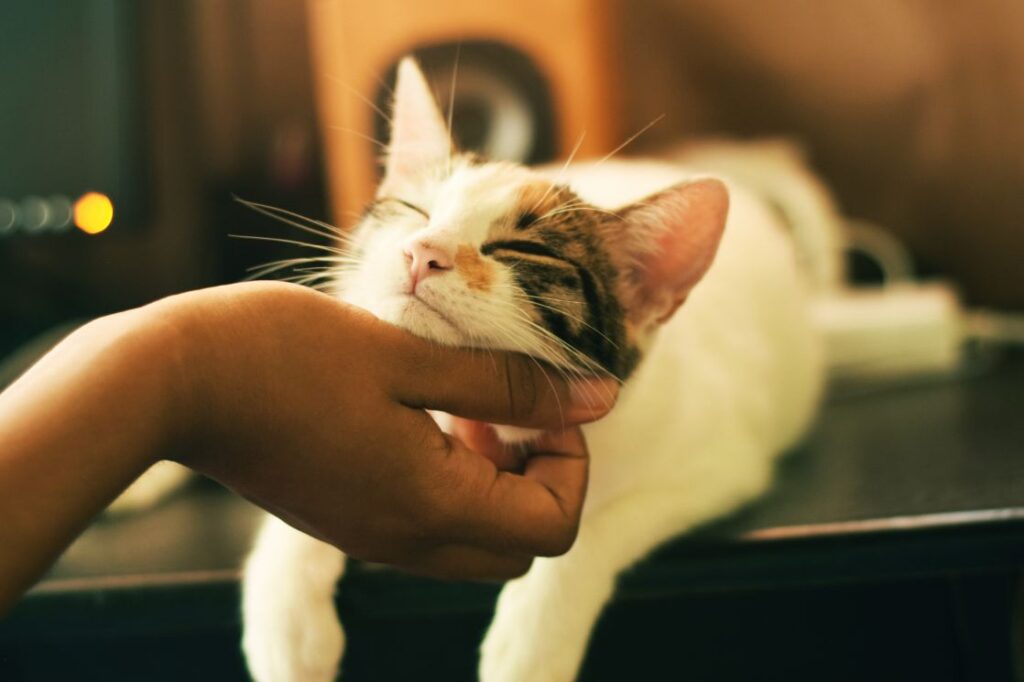Have you ever accidentally stepped on your cat’s paws and then tried to make up for it by giving him lots of treats and playing with him? You didn’t mean it, after all! If your cat has ever given you the cold shoulder after some perceived slight, you have likely found yourself asking, “do cats hold grudges?” and, just as importantly, “how long does a cat hold a grudge?”
The age of the cat may have an impact on the answer, which is debatable. As one veterinarian explains, “It is well known that kittens have poor memory. Kittens frequently require repeated reprimands for the same behaviors.” In other words, kittens might not have enough memory to harbor resentment. Other issues arise with older cats.
Please continue reading for more details.
Table of Contents
Do Cats Carry A Grudge?
Your cat might avoid you for a few days if you accidentally step on its tail or trip over them while stumbling to the refrigerator in the middle of the night. This may give you the impression that your cat has something against you, but is this really the case?
The underlying motivations of cats are probably very different from how we humans feel when we are accused of harboring a grudge, despite the fact that they sometimes act in ways that appear to be grudge-like.
In a human context, a person who holds a grudge against another person is one who has long-lasting feelings of resentment or anger towards them. It’s unlikely that this is what our cats are doing when they ignore us.
If you tripped over your cat last night and they are avoiding you today, their avoidance is likely less a sign of resentment than it is a sign that they are trying to avoid getting hurt or tripped over again. Grudge-like behaviors in cats are more frequently brought on by fear or anxiety than by anger or resentment.
The Memory Of A Cat
Like humans, cats have two different types of memory: working memory and long-term memory.
Working Memory
The amount of information that can be recalled at any given time is referred to as working memory. Numerous studies have shown that cats do not have good working memory skills. In these tests, cats are given a toy and asked to select one from a selection of toys.
If there is a delay of more than 30 seconds between the picking process and the showing of the cat toy, the cat will probably forget which toy it was shown. The fact that most cats are unable to recall the toy in this situation suggests that cats do not have good working memories.
Long Term Memory
The ability to recall events and knowledge from the past is referred to as long-term memory.

There is conflicting evidence regarding cats and long-term memory. The majority of online searches will inform you that cats have a 16-hour long-term memory, but this information is based on shady studies from 1964.
According to recent studies, cats could retain memories for up to two days. With such a wide range, it is clear that a cat’s long-term memory is influenced by a variety of factors.
A cat’s long-term memory also differs significantly depending on the breed, age, and environment.
How Long Do Cats Hold A Grudge?
How long cats hold onto their anger depends greatly on their age. Older cats tend to hold grudges for a longer period of time, whereas kittens tend to have a shorter memory.
Cats’ memories are active for 16 hours, as opposed to dogs, whose memories are active for only five minutes. In light of this, cats have been known to express their rage for up to 16 hours, but in general, it takes them a few hours to forget and apologize.
Sometimes it might take them a few days to return to their lovely and loving state.
This might take place if you trip over them or step on their tail unintentionally. It could also occur if they go through any sort of traumatic event.
Although they may appear to be avoiding you out of resentment, that is not the case. Cats typically recover quickly from traumatic experiences, but if they’re still acting wary of you, they’re probably anxious and just trying to protect themselves from happening again.
Cats connect people and things with either pleasant or unpleasant memories. Thus, based on your interactions with them, they would either approach you or avoid you.
Are Cats Forgiving Or Not?
Cats don’t hold grudges and are quick to forget minor mistakes. In an effort to protect themselves, they seek to overlook mistakes made by others.
Create a cozy, welcoming environment for your cat to help him forgive more easily. Few things will make a cat angry who is calm and self-assured. This will result in the quick restoration of tranquility in your home when coupled with your self-control.
Signs Your Cat Is Still Angry At You
They’re Avoiding You
The most obvious and telling sign is when your cat begins to avoid you.
Cats will flee the room or hide under your furniture when they’re upset with their owners and refuse to come out even if you keep calling for them.
Some cats, however, are further away and may take a while to approach you. If your cat is reticent, watch to see if it takes them longer than usual to come back to you.
Changes In Eating Behavior
Next, cats frequently reject their favorite food or even refuse to eat at all when they’re angry.
The Signature Look

Cats’ infamously sharp gaze is another telltale sign of their anger.
Even if you don’t own a cat, you’ve probably come across a frustrated cat online or in passing in real life, and you’re familiar with that unsettling yet endearing expression she has.
They Make Messes Everywhere
If your cat starts urinating or defecating on your fresh sheets, clean bed, or clean pillows, even though you are sure they are all in good health and cleanliness, this could be a direct indication of how angry they are. You might even get bitten by them occasionally.
However, it would be extremely rare, so do not worry.
Subtle Signs
Although the aforementioned indications of your cat’s anger are clear-cut and simple to spot, there are also more subtly expressive indications. These mainly relate to their physical characteristics.
Cats twitching their tails are the first subtle but alarming sign. Before your cat’s rage passes, you will need to observe its tail moving back and forth for a while.
Have you ever noticed how occasionally, as she crouches with her back arched, your cat would become fluffier, bigger, and more intimidating? Although you might think it’s cute, your cat is actually acting aggressively there.
Cats’ ears flatten tightly to the head and resemble airplane wings, which is another subtle physical indication of their anger.
This also occurs when they perceive a threat and become frightened, which is another aspect of their defensive mode. Everyone is aware that cats purr when they are content, joyful, displaying, and enjoying affection. Yet another manifestation of their rage is possible.
How Do I Apologize To My Cat?
If your cat is avoiding you, it’s only natural to want to “make up,” in order to repair your bond and restore a good relationship with your cat.
Refrain from pressuring your cat to show affection. Despite the fact that you might believe that a good hug would make everything better, that strategy is probably not the best. Insisting on holding or petting your cat will probably make the issue worse!
Instead, subtly encourage your cat to be close to you. To encourage your cat to approach without actually pursuing it, you might sit down a few feet away from the food bowl when you’re feeding your cat.
If your cat has a favorite bed or blanket, place it next to where you usually sit on the couch to subtly entice your cat to approach. If your cat is playful, use toys that your cat can interact with while remaining safe, like a teaser wand. Your cat should be gently and subtly encouraged to come up to you.
Avoid the temptation to chase your cat around your home or continually call out to your cat (“here, kitty kitty!”). Your cat may become even more anxious with additional attention. Keep your cool and give your cat some room instead.
Your cat’s comfort in your presence should eventually return as time passes without any stressful interactions. If the issue continues, speak with your vet to rule out any underlying medical conditions that may be causing your cat’s behavior changes and to go over potential treatment options.
Conclusion
Cats usually don’t harbor grudges for very long. Your cats would return to you in a few hours, full of love and affection.
Cats who abruptly start avoiding their owners are more likely to do so out of fear or anxiety. Consult your veterinarian if your cat’s behavioral symptoms persist or if you notice that they are accompanied by any symptoms of illness.
